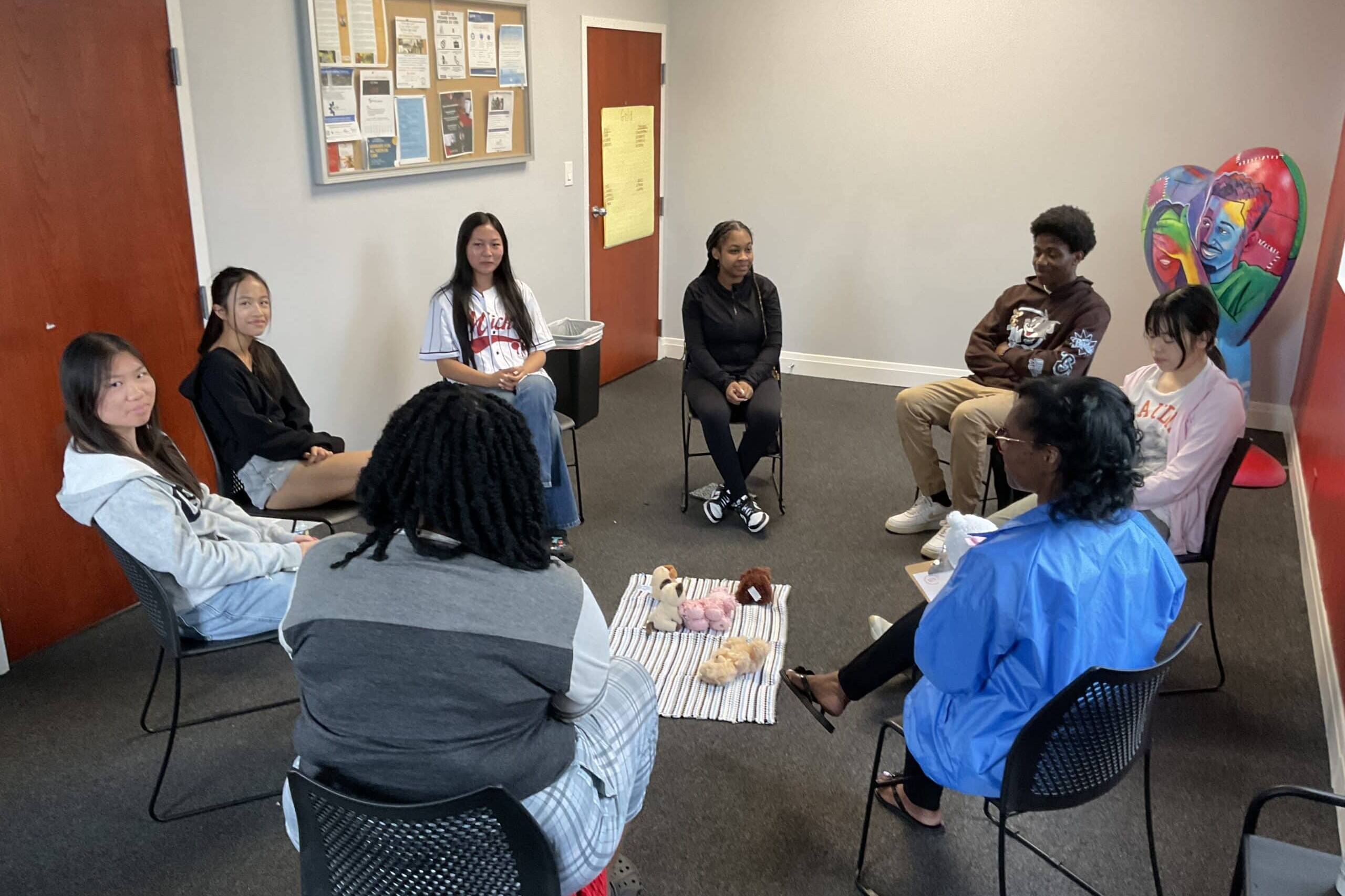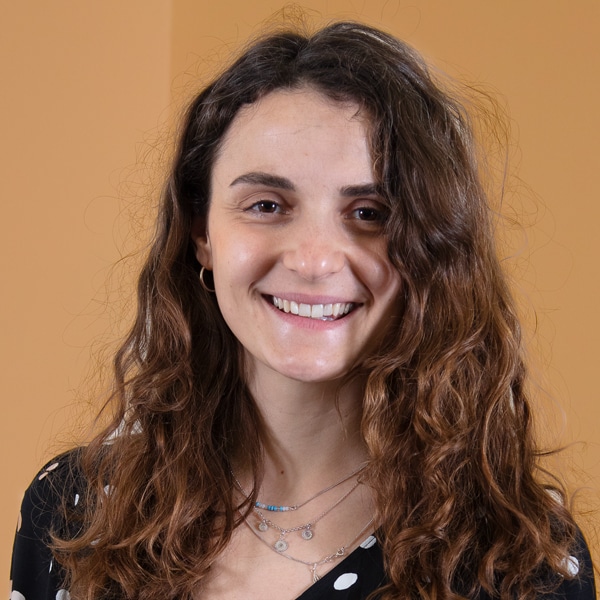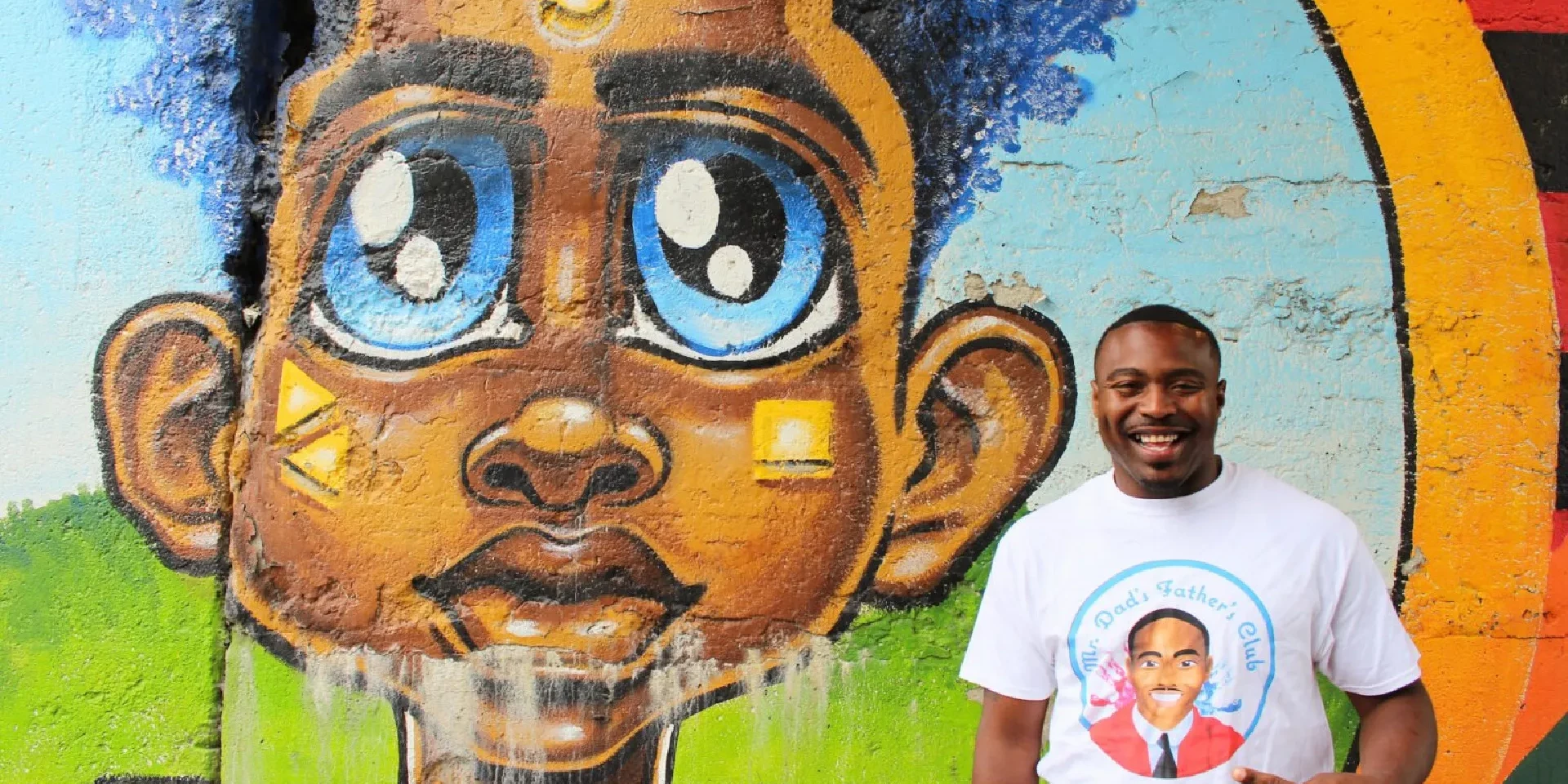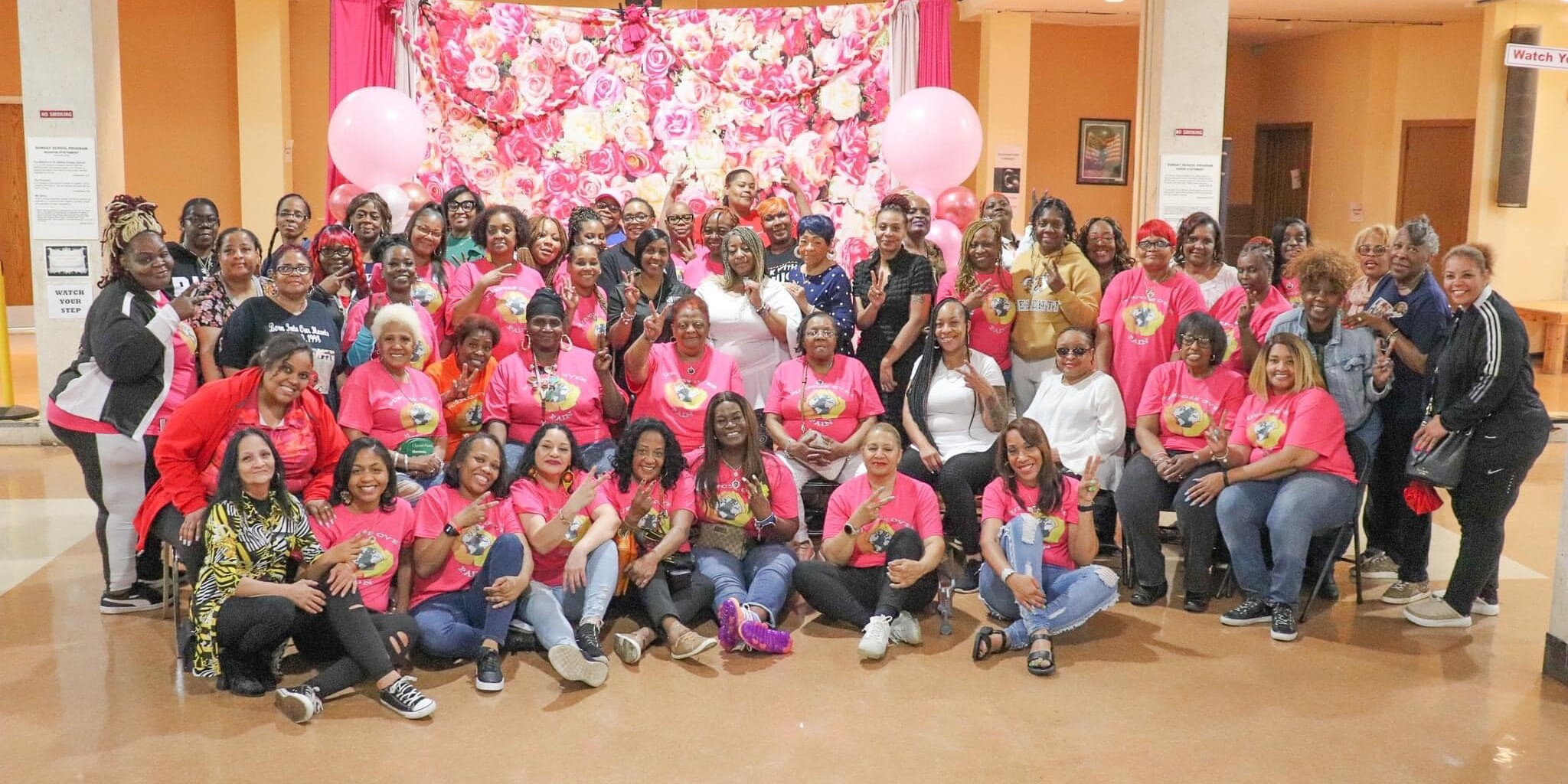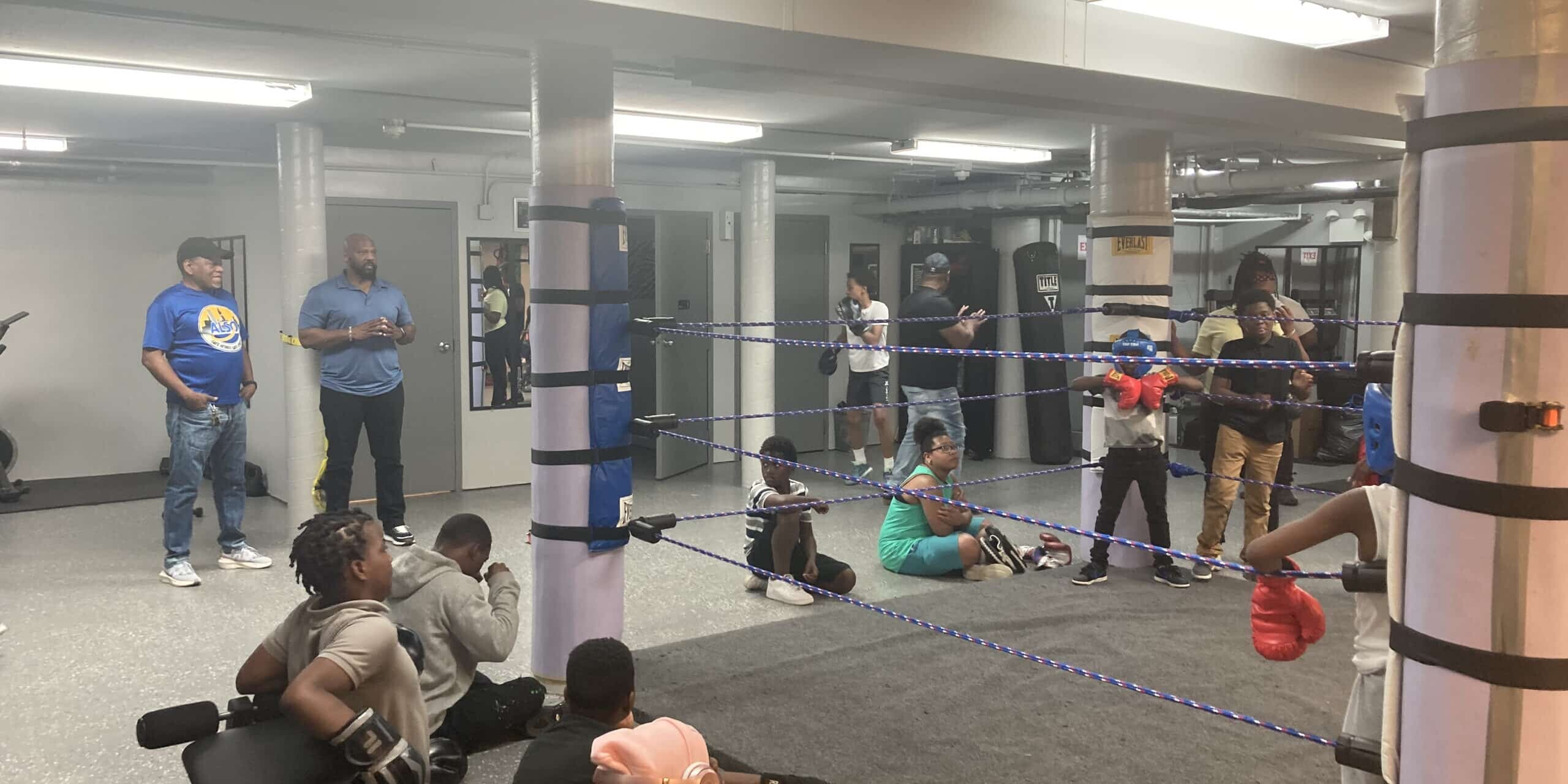In 2024, Cosette Nazon-Wilburn, Executive Director of the Love, Unity & Values (LUV) Institute and 2020 Chicago Peace Fellow, initiated the “Racial Healing Collaborative,” a six-week program promoting racial healing, growth, and self-identity among eight Black and Asian American Pacific Islander teenagers in Chicago.
In partnership with the Coalition for a Better Chinese American Community, LUV achieved this through restorative circles, storytelling, poetry, and artistic expression. The Racial Healing Collaborative taught a cohort of youth representing Bronzeville and Chinatown how to identify and address inherent biases, reject stereotypes, and build relationships.
Speaking to Goldin Institute, Cosette shares her personal experiences and the challenges she faced in launching the program with limited funding—obstacles that did not diminish the project’s significance and success. She also reflects on her journey with the Goldin Institute and how it has enriched her path as an activist.
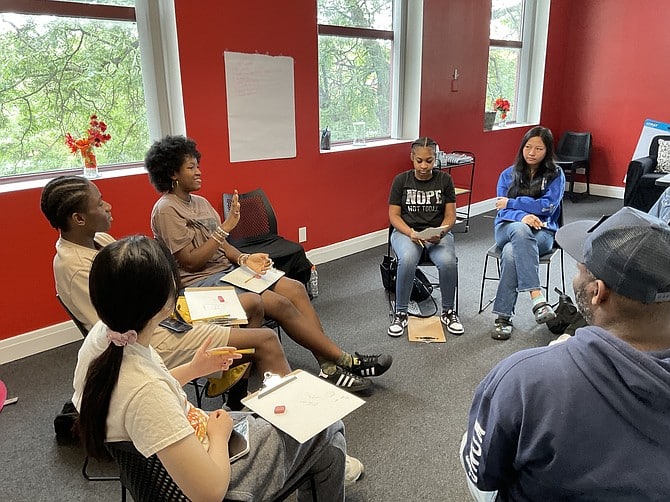
Racial Healing and its Meaning for Teens
Initially, Cosette speaks about the Racial Healing Collaborative’s aim: “The program’s goal is to empower teens to address racial inequity issues and celebrate their differences. From my own experience, I know that people often make assumptions about individuals based on their appearance. We envisioned a dialogue between African-American students and Chinese-American students. What we discovered is that there were more similarities than differences.” Inspired by Cosette’s community work around healing, healing circle facilitators encouraged students to think deeply about what racial healing looks like for both communities.
When asked what social healing means in practice, Cosette shares: “Racial healing looks like a couple of things. It looks like a community where differences are celebrated and explored. Through racial healing, the differences that were there from not knowing are discovered. Each person has a tool to address racial healing, if an issue arises, they also have the confidence to do that.” She believes this conversation is crucial, especially in light of the racial inequities that have emerged during the COVID-19 pandemic, among other issues.
Cosette also shares what has been the most rewarding aspect of working on the Racial Healing Collaborative. “What I recently witnessed is that they [Black and Asian young people] are friends, they are talking to each other, doing collages, and sharing experiences.” According to Cosette, this is particularly important in light of potential communication and stereotype issues between the two communities.She emphasizes that the program has been well-received by the participants who have formed strong bonds and are creating artwork to represent their journey.
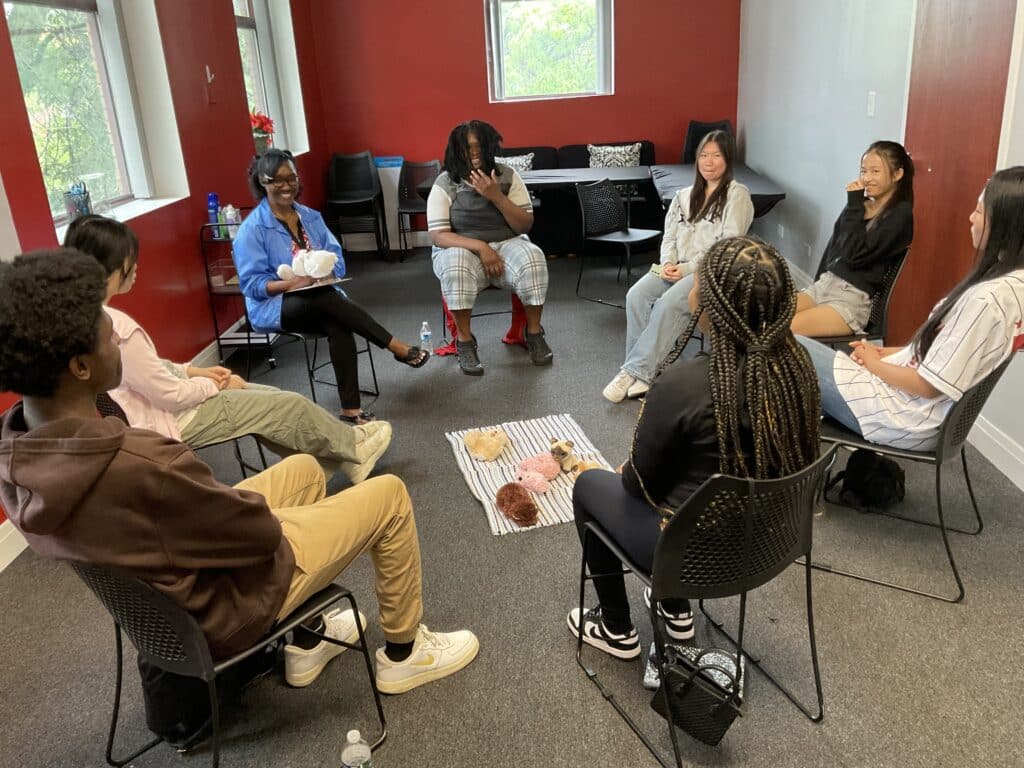
Goldin Institute Fellowship – A Hub for Meaningful Connections
It’s been almost four years since Cosette participated in the Chicago Peace Fellowship. In this piece, she also speaks on how this experience influenced her perspective and journey.
“I had such a rich experience as a Chicago Peace Fellow. It was so impressive because I participated during a time when we had the COVID-19 crisis and world polarization. And also, what was on our minds at the time was a lack of funding for Black and Brown-led organizations.”
–Cosette Nazon-Wilburn
In response to this situation, she recalls collaborating with other Fellows and initiating a petition in support of Black and brown-led organizations. “I would not have been able to do this without the Goldin Institute and the relationships created through the Chicago Peace Fellowship. And then love grew!”
2020 Chicago Peace Fellows, she adds, started to better understand their role and how they could work together to shift the community. While she was a Fellow, they launched the Parade of Hearts, an arts initiative with the LUV Institute.
Supporting LUV’s Important Community Work
Conclusively, Cosette expresses her hope to continue funding and exploring new pathways for the program, which has had a significant impact on young people, especially those from underprivileged backgrounds. “I hope that we have uncovered something that will be beneficial to youth. I saw that when we took youth from Englewood to downtown Chicago, there was a difference. They were like, ‘Oh my God, I’ve never been in town before.’ This is a shift! I saw that when we took the youth to Little Rock, Arkansas, to understand and explore their own Little Rock Nine stories.”
“I witnessed change, and this is the true power of our work.”
Cosette believes in the power of this initiative, and you can support LUV and such programs by donating today!
